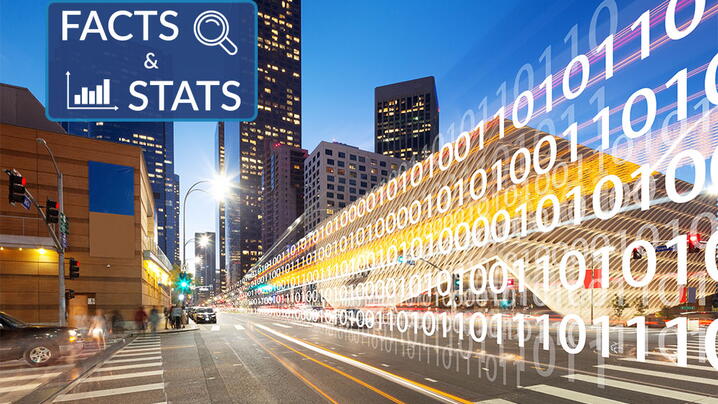
by Rebecca DeSantis, content and engagement coordinator, ICMA
Local governments are expected to use smart, new technology to deliver services these days. With limited resources, local leaders work to deliver these services by seeking out smart city solutions that meet their needs. Kevin Desouza, ICMA Local Government Research Fellow, emphasizes the importance of improving service delivery with smart solutions to have a greater impact on a community. "Smart communities will truly become more intelligent through increased situational awareness of their environments, which will enable them to assess the impact of actions by organizations and individuals within their environments," explains Desouza in his 2019 Prediction on Smart Communities.
Smart solutions can be implemented to have an impact on many forms of service delivery, like moving to online payments, developing transportation applications, creating a system for recreation reservations, and more. If your community is looking to make the jump to smart solutions, you'll probably have to consider all aspects of such a change, including budget, security, and capacity. You may also want to consider the current trends in smart city technology and how they apply to your needs.
To gain a better understanding of local government uses of smart solutions, ICMA conducted a survey in 2016 with the Smart Cities Council to learn more about the priorities and activities of U.S. local governments. The council defines smart cities as communities that use information and communication technology to enhance livability, workability, and sustainability. The results of this survey provide insight into the current use of technologies in the United States, as well as key motivators and barriers to the adoption of these solutions.
Check out some highights from the survey results and current practices in smart solutions.
-
59.5% of local government respondents identified that they are actively deploying smart payments and finance technologies.
We know that local government leaders are often looking for best practices around finance and budgeting, and this result confirms that finance is a key area where smart solutions are being implemented. Interestingly, the survey also found that for those actively deployed smart technologies, respondents are more likely to build and operate systems internally than to outsource solutions to consultants; however, most respondents reported that they would take a combined approach, relying on both internal capacity and external support.
-
48.9% of respondents indicated that public safety is the sector where smart city technologies represent the top priority.
Among survey respondents, smart city activities are prioritized most highly in the public safety sector. Gunshot detectors, resident alert systems, and smart cameras (video analytics) are just a few possibilities that communities are considering to improve public safety for residents using smart technology. Cloud-based 311 systems are a great example of taking existing technology in public safety and meeting high demand by finding a smarter solution.
-
Capital and operational cost savings is identified as the most important motivator for implementing smart city technologies.
Based on survey results, economic growth and cost savings are the most important benefits motivating smart city activities, and budget limitations and limitations on internal capacity are the most significant barriers. It is helpful to consider updated current technology or infrastructure as a great way to reduce costs. Often, smart technologies are much more cost efficient than building a new highway or wastewater facility because they capitalize on existing infrastructure.
Download the Smart Cities Survey results to learn more!
New, Reduced Membership Dues
A new, reduced dues rate is available for CAOs/ACAOs, along with additional discounts for those in smaller communities, has been implemented. Learn more and be sure to join or renew today!
